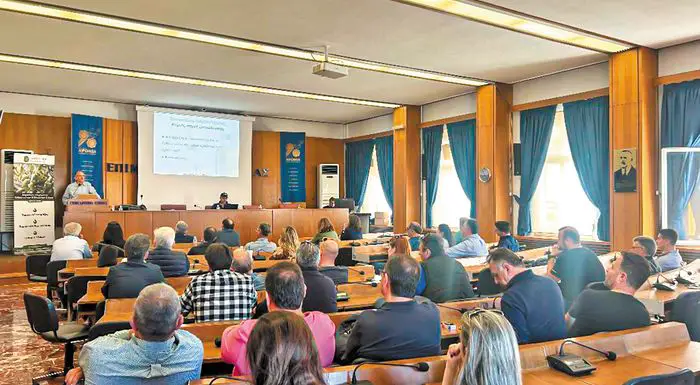
Information session on “Mineral Aromatic Hydrocarbons (MOAH): Update and action plan for olive mills” was successfully held last Tuesday (10/4), at the Chamber of Euboea by Elaiorgiki Boiotias SA. The conference brought together representatives of olive mills from all of central Greece and Euboea.
The event was organized in the context of the upcoming reduction in the maximum allowed content limit. Aromatic Mineral Hydrocarbons (MOAH) in foodstuffs marketed in the Member States of the European Union, from 5 mg/kg to 2 mg/kg.
The main speaker of the event was Manolis Salivaraslaboratory analyst, who developed the effects of contamination on the safety and quality of olive oil and pomace oil and presented action plans to reduce the spread of contaminants, with emphasis particularly on MOAH.
He listed the different ways in which MOAH can be transferred to the product, such as “by cutting branches when harvesting olives with chainsaws that have been used with inappropriate lubricants, or by olive storage bags.” . .
Pesticides
The briefing continued with particular reference to pesticides which are detected during the analyses, which are carried out on olive oil samples even today, despite their ban on movement from the European Union, and they load the olives with contaminants. Individual alternative proposals for the protection of production, but also processing, approved by the EU, were analyzed.
The event ended with suggestions for improving practices and procedures followed to avoid olive oil contamination, such as using hard plastic crates to transport olives and using approved lubricants or seed oils to lubricate olive cutting or processing machines .





